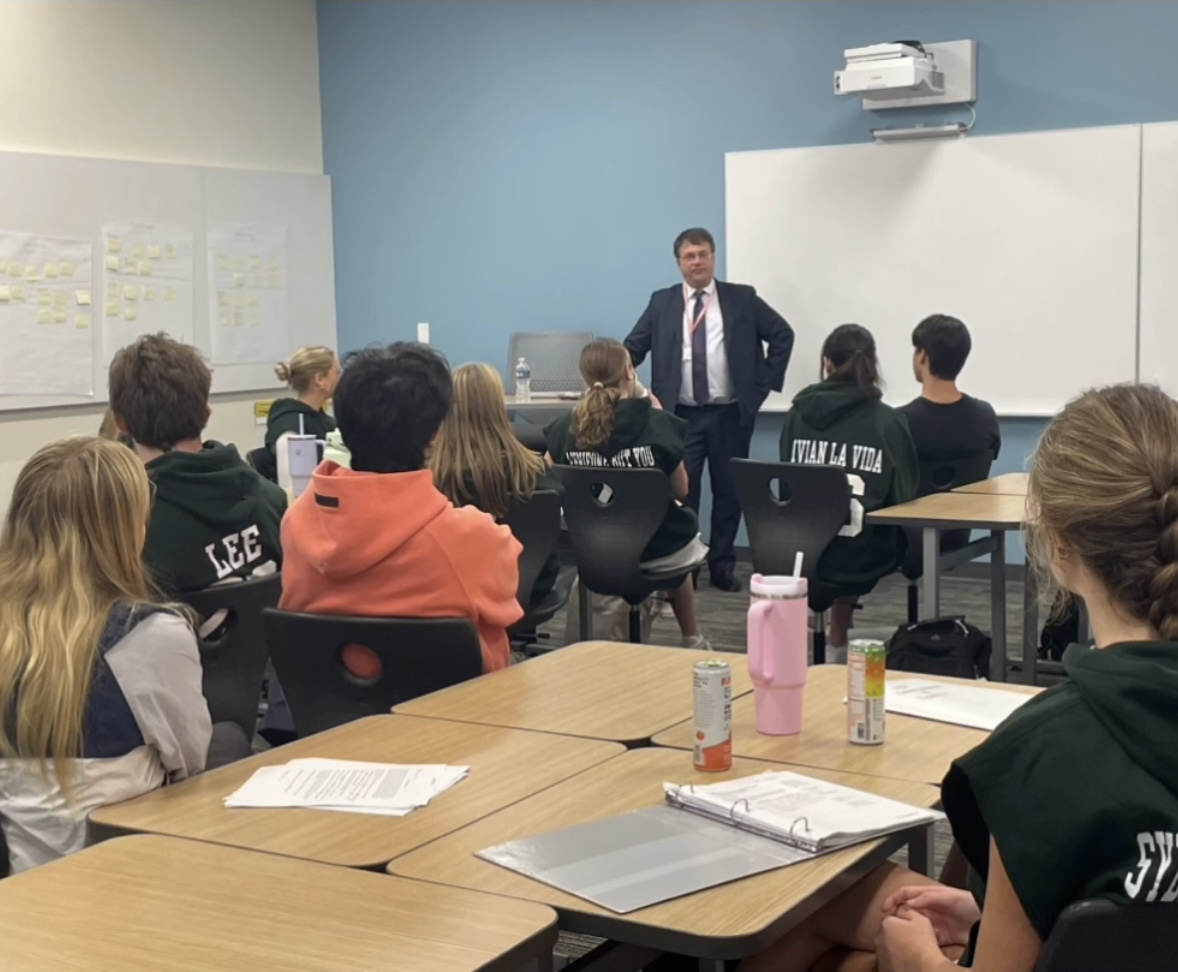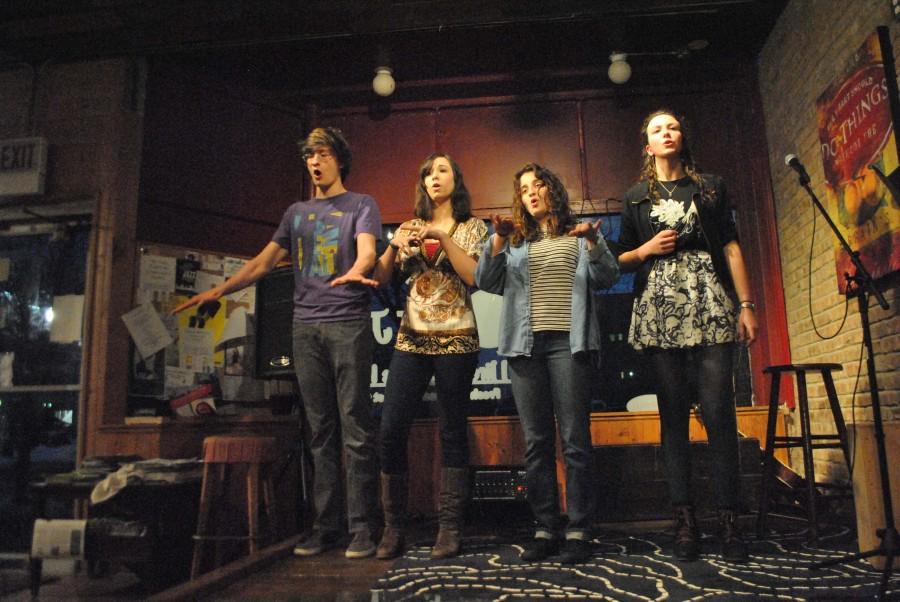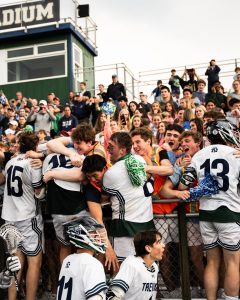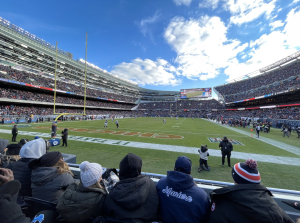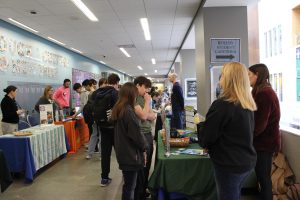The Live poets society
Poetry club serves as an outlet for students’ self expression
January 29, 2016
Race, religion, ethnicity, and sexual orientation are just a few of the touchy subjects that New Trier’s Poetry Club.
In many other areas of discourse, expressing opinion is not always an easy thing, especially with so many dissenting opinions on a wide range of different topics. In Poetry Club, the students’ personal thoughts and experiences are center stage, but the crowd never boo’s.
When asked about how students treated each other’s poetry, senior Mikey Ruby said that they “give me helpful feedback and criticism, offering new ideas and their own perspectives.”
Poetry Club has become a safe place for many New Trier students to come and express themselves. As John O’Connor, one of the Poetry Club sponsors said, “The point [of Poetry Club] is to share ideas, to express ourselves, [and] try to understand ourselves and the world better.”
This gives students a place where they can feel safe from ridicule or social rejections.
O’Connor said that Poetry Club is “a safe place where people can experiment with language and write in a different way than they’re [normally] able to.”
This atmosphere of comfort and assurance provides a place for students to talk about their lives with their peers.
O’Conner said, “People have come out in Poetry Club, some people have admitted that they have been victimized in some way in their lives, some people have admitted to being victimizers.”
Poetry Club has been giving students the opportunity to talk about sensitive topics while simultaneously feeling free from the pressures that surround them.
Ruby says, “It’s difficult to reveal personal emotions because people don’t typically share them as often as they maybe should.” Though with the supportive atmosphere that Poetry Club gives to their members, Ruby also explains that once you do share “it is relieving because you are not alone.”
Most members believe that through poetry, they can connect to other members. Ruby explains, “Poetry is one way for students to use their imagination and to express themselves, all while tapping into the universal human experience.”
Senior Musa Abbasi agrees with that concept. One of his goals in Poetry club is “to further my understanding of my classmates and gain a greater appreciation for them.”
Because the club is solely made up of teenagers, writers of the modern era are discussed more often: not so much Lord Byron but more Kendrick Lamar. A favorite of the club is rapper, activist, educator, poet, and author Nate Marshall. Marshall is one of the young stars of “Louder than a Bomb” (LTAB), a documentary about a high school poetry competition that takes place at the end of February every year.
Slam poetry is fairly popular among club members. Take Abbasi, a senior who has been attending poetry club since he was a freshman. He prepares for LTAB by “free writing… I just write out all sorts of ideas I have for poems. The one that I think has the greatest potential to be a meaningful slam poem, I write out a draft for.”
Slam is more of a get together and less of a competition. Their slogan reads, “It’s not about the points, it’s about the poetry,” which is reflective of their nonchalant attitude towards competition and emphasis on expression.
In the beginning of February, they have a get together for all poets participating in slam. They mix the crowd up, leaving members astray from their own group then put them to work writing poetry with people that they may have never met.
All students are welcomed to join and discuss their pieces in Poetry Club. O’Connor said, “We try to invent other ways to give people a space to perform their poems.”
Whether it be sonnets, limericks or lyrical poems, all students are encouraged to discuss their pieces with their peers.
No matter how a student wants to express themselves, the design behind Poetry Club is to give students that outlet. Abbasi said, “If I weren’t able to express myself through poetry, I would have a great deal more difficulty handling my emotions.”




